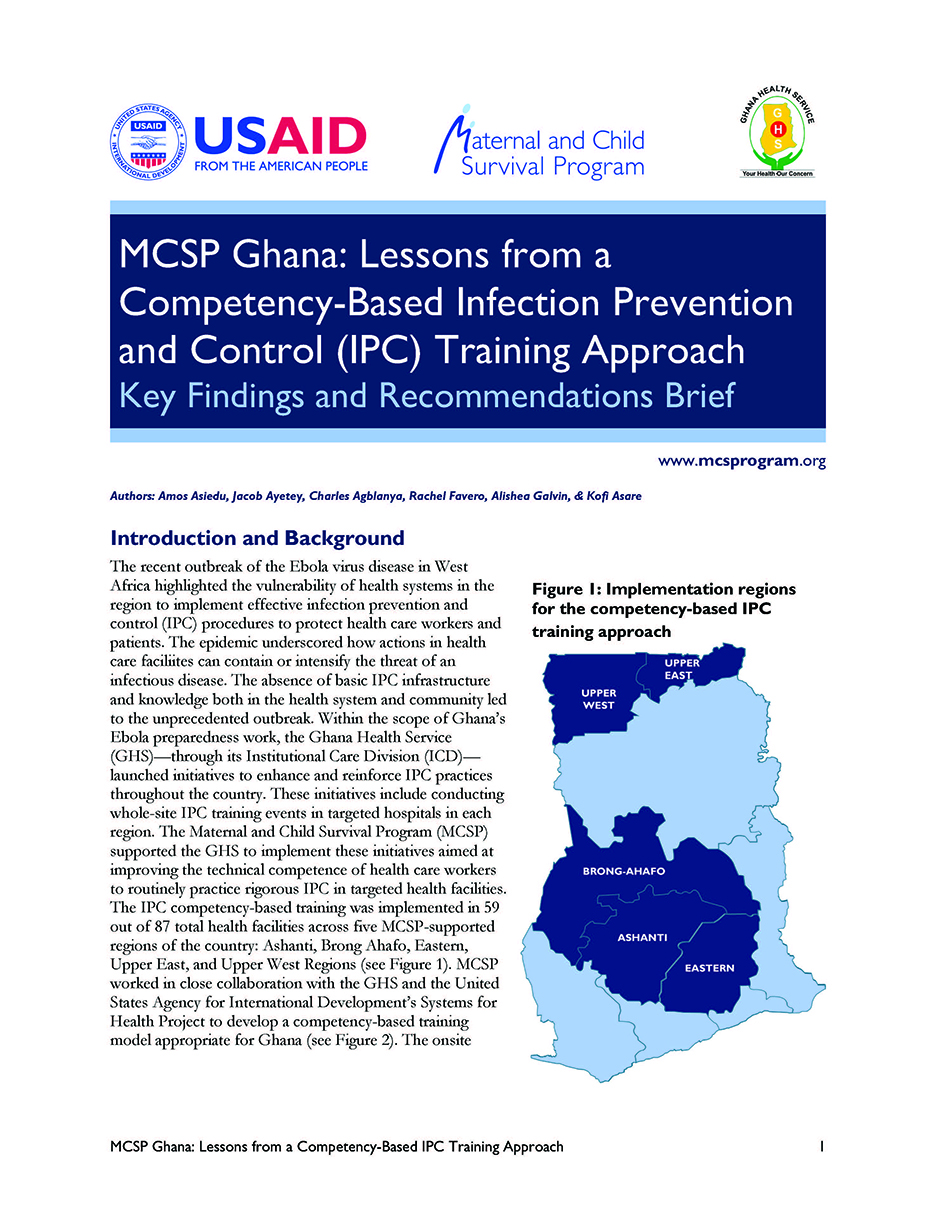Publish Date: April 2018
Author: MCSP
The recent outbreak of the Ebola virus disease in West Africa highlighted the vulnerability of health systems in the region to implement effective infection prevention and control (IPC) procedures to protect health care workers and patients. The epidemic underscored how actions in health care facilities can contain or intensify the threat of an infectious disease. The absence of basic IPC infrastructure and knowledge both in the health system and community led to the unprecedented outbreak. Within the scope of Ghana’s Ebola preparedness work, the Ghana Health Service (GHS)—through its Institutional Care Division (ICD)—launched initiatives to enhance and reinforce IPC practices throughout the country. These initiatives include conducting whole-site IPC training events in targeted hospitals in each region.
MCSP supported the GHS to implement these initiatives aimed at improving the technical competence of health care workers to routinely practice rigorous IPC in targeted health facilities. MCSP contributed to the development of the National IPC Policy and Guidelines, the IPC facilitator’s guide, training session plans, pre- and post-training assessment questionnaires, and checklists for IPC procedures. This brief presents lessons learned from the implementation of MCSP’s competency-based IPC training approach that occurred from October 2015 through February 2018 through USAID’s Pillar IV Ebola funding.
MCSP Ghana: Lessons from a Competency-Based Infection Prevention and Control (IPC) Training Approach Key Findings (1682 downloads )

